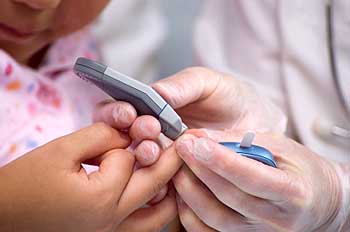Sometimes, living with diabetes and managing the disease can be very stressful. There is so much that you have to learn about living with the disease and managing it, on a day to day basis, so that you can survive and live a normal life. By reading this article, you are well on your way!
- Gestational diabetes does not always disappear after birth; keeping checking your glucose levels to make sure diabetes has not returned. Many people are under the misconception that once you have had your baby, you will no longer have abnormal blood sugar levels.
- Because alcohol is converted into sugar and increases blood sugar levels, it should be avoided by diabetics. Make sure you talk about your alcohol consumption with your doctors.
- When you go without food for a long time, your liver puts out glucose to fill the gap, which can cause a spike in blood sugar levels. To prevent this, eat your regular meals as well as carbohydrate filled snacks between meals. Follow the recommended diet plan of your physician.
- If you have been diagnosed with diabetes, then you need to know how different foods can affect your body. There are foods that will do you good and foods that could make you very sick.
- You can save money by getting your diabetes medications from a website. It is often possible to set up recurring deliveries to prevent running out of your supplies.
- Understand how ketoacidosis works and what triggers it. Ketoacidosis causes a higher level of acid in blood, which comes about when blood sugar becomes extremely high. Ketones appear as a byproduct of this process, which makes the blood more acidic than normal. This can be very harmful and may even result in a coma. Symptoms that occur include fruity smelling breath, confusion and extreme thirst. These particular symptoms can be treated by increasing hydration levels and taking insulin. Ketoacidosis can be prevented through close monitoring of blood sugar levels, regular insulin intake, and knowledge of symptoms and treatment options.

- If you find it difficult to keep track of your sugar levels as part of your diabetes management, use a log to record them. Keep a journal for your doctor of your treatments and readings. Your doctor will be able to help you manage your diabetes symptoms and treatments.
- Try to eat your current favorite foods, but in healthier ways. Just because you may suffer from diabetes does not mean that you have to suddenly walk away from all your favorite foods. Simply experiment with options for turning your favorites into things that benefit your health. There is no shortage of websites and cookbooks that offer great tasting recipes for people who are dealing with arthritis.
- Always remember to take your diabetes medicine as directed. You must take your medication properly and at the specific times you are told. Do not let symptoms unnoticed fool you. One of your greatest resources will be your doctor. Any time you happen to experience a new side effect or have a serious question about a trouble you are facing with your medication or treatment plan, he or she will do their best to offer advice and guidance from a purely medical standpoint. Never quit taking your prescribed medication without first consulting your doctor.
- It's important to remember why you choose to keep your diabetes under control. Stay conscious of the hobbies and activities you enjoy that rely on your good health. How can diabetes affect those hobbies if not controlled? By staying focused on what's most important, you'll remain motivated in your diabetes management.
- One of the most important duties you have as a diabetic is to maintain regular appointments with your doctor or medical provider. Diabetes can usually not be cured. So, continual attention, management and prevention to stop the worsening of your condition are all critical priorities. Diabetes does not need to disrupt your life, if you follow a program to manage it properly.
- If you suffer from diabetes, it is important to learn how to eat right. You don't need to eliminate sweets entirely. So long as your blood glucose level is at its proper level, having an occasional dessert will be fine. You can accomplish this by taking out an amount that is equal in carbohydrates from the main meal you eat.
- It is very important not always rely completely on the urine ketone assessment for evaluating your blood sugar. High ketone levels within the urine suggest only that your blood sugar is approximately greater than 200 milligrams per deciliter (mg/dl). Use a home glucose gauge to assess the precise amount of glucose inside your blood as an alternative. The American Diabetes Association (ADA) takes this type of tests to be far more accurate compared to urine screening.
The management techniques you learned in this article can help you keep diabetes under control and improve your quality of life. Remember that the information laid out here is just a bit of the information available, so keep learning all you can about managing your diabetes.
No comments:
Post a Comment